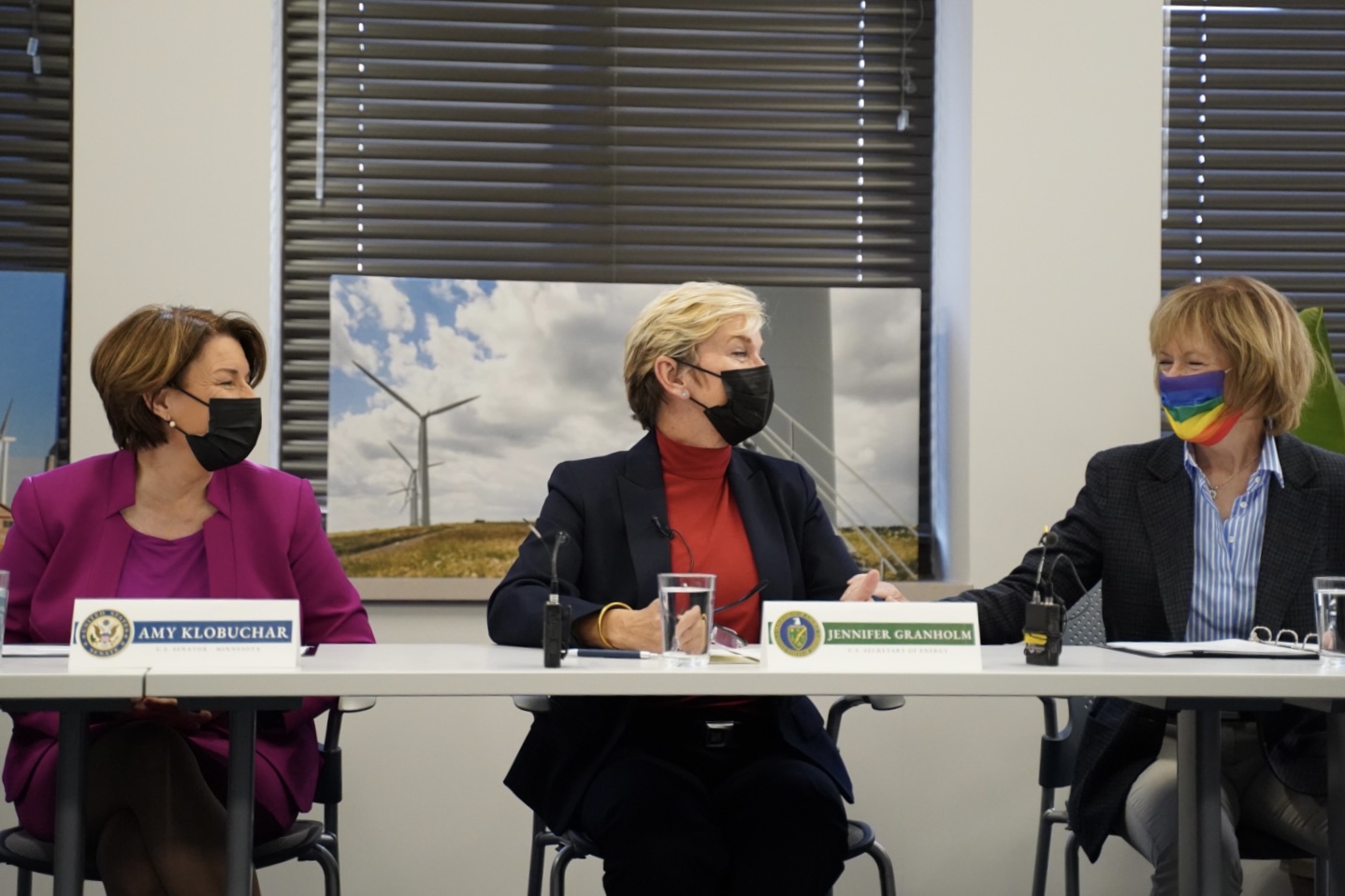|
September and October have been busy and exciting months for all of us. Another Minnesota school year has begun, and that nervous, yet determined feeling that comes with a new school year has also been felt here in Washington with my work to ensure the Build Back Better budget benefits families, communities, and businesses across Minnesota. I have successfully advocated for the November 8 reopening of the U.S.-Canadian border for vaccinated travelers, which is good news for hard-hit Northern Minnesota businesses and communities that depend on Canadian travelers to thrive. In addition, I have called on the U.S. Postal Service to answer to its plan to slow down first-class mail, met with U.S. Energy Secretary Jennifer Granholm in St. Paul to discuss our push to transition Minnesota and the nation towards a clean energy future, and taken on big pharma by fighting to lower prescription drug costs for Minnesota families and seniors. Together, we are Building Back Better. -Tina Smith |
|
Minnesota Feeling the impact of USPS Plan to Slow Delivery |
|
|
Recent changes to the U.S. Postal Service’s First-Class Mail, implemented under Postmaster General Louis DeJoy, have resulted in the slowest delivery standards in 50 years. This is unacceptable. I called Postmaster General DeJoy to explain the impact these changes will have on individuals and communities in Minnesota and across the country. I understand Postmaster General DeJoy’s desire to address budget shortfalls, but I am concerned that these changes will disproportionally affect seniors, people with disabilities, veterans, rural areas, and Tribal communities across the country. Mail service is often a lifeline for millions of Americans, and this slowdown is hurting them. |
|
U.S. Energy Secretary Granholm Discusses Transition to Clean Energy During St. Paul Visit |
|
|
Recently in St. Paul, Senator Amy Klobuchar and I spent the day with Energy Secretary Jennifer Granholm discussing clean energy proposals in Congress that would help Minnesota become carbon-free. We talked with utilities, Minnesota state agencies, and local nonprofits about how to reduce emissions while also ensuring that energy costs remain affordable, the grid remains reliable, and that we create new clean energy jobs. The clean electricity plan I proposed would be an efficient way to add clean energy. As we continue the complicated, often-difficult negotiations over how best to address the ongoing climate crisis, we can’t lose track of our goal to reduce carbon emissions. Clean energy is going to be the future, and Minnesota can help lead the nation on its way. |
|
 |
|
Bipartisan Action to Prevent Big Pharma Practices that Keep Prescription Drug Prices High |
|
|
When I talk to Minnesota families and seniors, one of their top concerns is the high price of prescription drugs. Sen. Mike Braun (R-IN) and I recently reintroduced our bipartisan bill, the Expanding Access to Low-Cost Generics Act, to address a big pharma ploy that keeps prescription drug prices high for millions of people in Minnesota and across the country. Right now, big drug companies can stop others from making low-cost generic versions of their drugs. They do this by making agreements to not sue a company if they in turn agree to delay marketing low-cost versions of medications. It’s called “parking.” This anti-competitive market strategy forces Minnesotans to consistently pay higher prices for their prescriptions. My bill with Senator Braun would take important steps to prevent this type of bottleneck and prevent the delay in getting lower cost prescription drugs to Minnesotans. We need to keep drug prices affordable for families and seniors in Minnesota and across the country. |
|
|
|
